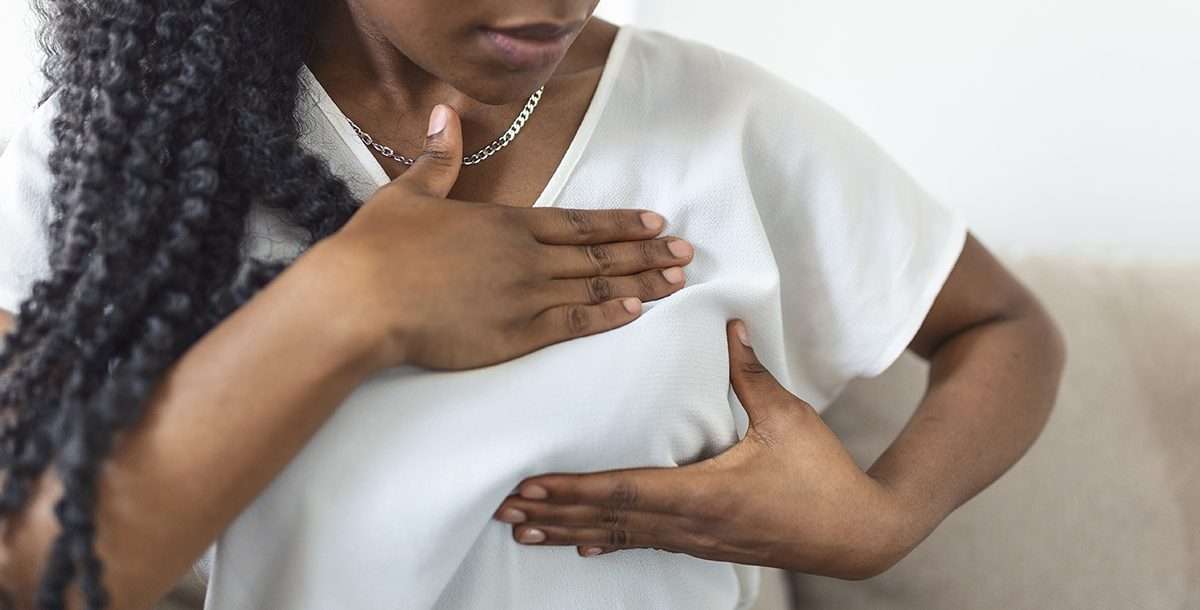
Women with extremely dense breasts, which are characterised by minimal fatty tissue, face a risk of breast cancer four times higher than women with lowest breast densities, according to a recent study.
The study which was published in the journal JAMA Network Open found that of nearly 1,900 women who participated, the majority saw breast density as a less consequential risk factor than family history.
Majority of women are aware that having a family history of the condition raises their chance of developing it, but a lesser percentage are aware that having exceptionally thick breasts might enhance their risk.
The investigation found that women who have thick breast tissue, but not to an excessive degree (approximately 40% of those who have mammograms), had a 20 per cent greater risk of breast cancer than those who have ordinary breast density.
Dr Phoebe Freer, chief of breast imaging at the University of Utah Department of Radiology and Imaging Sciences, who wasn’t engaged in the survey, claims that this is somewhat lower than the risk connected with having a glass of wine each night.
“Everybody has a different amount of fibroglandular tissue and a different pattern. It’s almost like a patient’s fingerprint,” Freer said.
The only way to tell if you have dense breasts is via a mammogram, which doctors generally recommend every one or two years for women starting in their 40s or 50s, she stated.
According to Christine Gunn, a researcher at the Dartmouth Institute for Health Policy and Clinical Practice, who performed the JAMA study, clinicians may unintentionally minimise the dangers since thick breasts are frequent.
“There are a lot of conversations with primary care doctors where they say, ‘This is normal.’ For some women, it translates to, ‘Oh, I don’t have to worry about that,'” Gunn said.
In individual interviews as part of Gunn’s survey, six out of 61 women said dense breasts contributed to breast cancer risk.
According to the study, there are two reasons dense breasts are linked to a higher risk of breast cancer.
First, the composition of the breast might predispose people to cancer. The reasons for that aren’t clear, but scientists suspect that cancer is more likely to develop in fibroglandular tissue, which is unique to the breast, as opposed to fatty tissue, which is found throughout the body.
Second, because women with extremely dense breasts have almost all fibroglandular tissue, it’s harder to detect cancerous masses or calcium deposits on a mammogram. That makes it easier for cancer to grow or spread undetected rather than being spotted and treated early.
Checking for cancer in a patient with dense breasts is like searching for a white spot on a white wall, according to Dr Melissa Durand, an associate professor at the Yale School of Medicine Department of Radiology and Biomedical Imaging.
Durand explained that both fibroglandular tissue and cancer show up white on a mammogram, whereas fatty tissue shows up black.
“In a completely fatty breast — so lots and lots of black on the mammogram — we can be as accurate as 98 per cent,” she said. “But our sensitivity can drop really low — in some studies, even as low as 30 per cent— if you have an extremely, extremely dense breast.”
To lower one’s risk of breast cancer overall, doctors recommend limiting alcohol intake, exercising regularly and maintaining a healthy diet. The Breast Cancer Surveillance Consortium offers an online tool to help people gauge their breast cancer risk based on multiple factors, including breast density.










